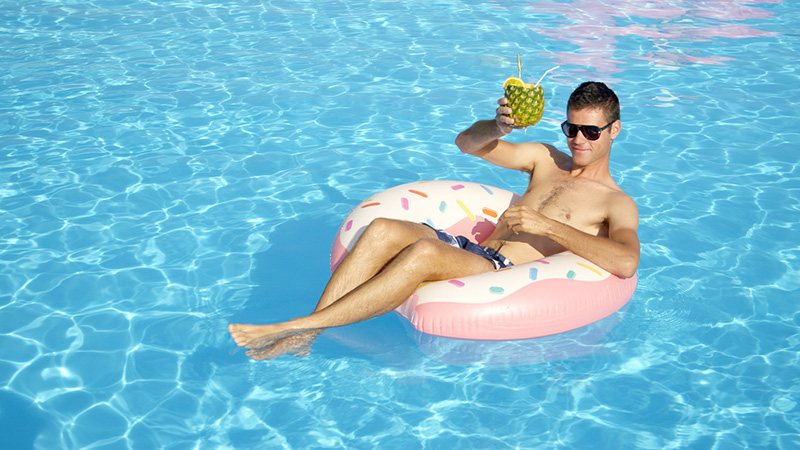Last Thursday, day two of legal pot sales in British Columbia, the government reported 3,084 sales in its lone store in Kamloops and on its online store website.
Weirdly, the government says the dollar value is a secret.
But let’s assume the sales pattern was similar to less-secretive Alberta, where the government reported the average purchase was about $90. That’s enough for about nine grams of Galiano weed, “Light and clean with earthy mocha notes and a subtle sweetness,” according to the Liquor Distribution Branch website.
So we can roughly estimate the government sold about 60 pounds of pot Thursday. (The number of sales was higher on the first day of legalization.)
Pretty small potatoes in the world of mood-altering substances.
The B.C. government sold 274,000 bottles of wine Thursday. That’s based on average daily sales in the Liquor Distribution Branch’s most recent quarterly sales report. (Why are alcohol sales figures OK to release, but cannabis sales must remain a secret? Good question.)
For every ounce of pot, the government sold about 300 bottles of wine and 440 six-packs of beer.
The government also sold 421,000 six-packs of beer on Thursday, 87,000 six-packs of cider and coolers, and 97,000 bottles of what the LDB calls spirits — gin, vodka, Scotch and the rest.
Government cannabis sales on day two were worth about $270,000, by my calculations. Government alcohol sales — wholesale — were worth $9.2 million.
Of course, people are buying cannabis from other sources — neighbours, local semi-legal dispensaries, online, a dealer. And more legal outlets are coming.
And of course there are concerns about legalization. The media has been all over them in the last month, from impaired driving to the effect on teen brains.
In that month, British Columbians bought 8.2 million bottles of wine, 12.6 million six-packs of beer, 2.6 million six-packs of cider and coolers and 2.9 million bottles of what we used to call hard liquor.
There are just under four million British Columbians of legal drinking age. So that’s two bottles of wine per person, about two-dozen beer and coolers and the best part of a bottle of booze per person, sold in one month. (About 20 per cent of Canadians don’t consume alcohol, so the rest of us are drinking more.)
We’re swimming in alcohol. Or we could. Each month, we buy enough beer, coolers, wine and spirits to fill 16 Olympic swimming pools with a truly gross cocktail. And I expect people would drink it.
Because most of us like alcohol. A glass or two of wine eases the woes of a tough day. A couple of martinis sweep disappointments aside. A few beers help friends enjoy a day at the beach.
It can be a nice drug, like marijuana.
Or it can kill. Spectacularly, in grisly drunken crimes and car crashes.
And more quietly. The most recent provincial government report said alcohol-related deaths killed 2,074 of us in one year.
Opioid overdoses killed 1,450 people last year.
That’s rightly considered a crisis. But alcohol deaths we ignore. As we mostly ignore the lost jobs, broken families and crime that results from alcohol misuse.
A few years ago, a non-profit in Victoria had the idea of raising awareness of fetal alcohol effect by asking municipal politicians to give up drinking for nine months. We have an army of politicians here, with our 13 municipalities. But only one person agreed to take part.
The telling part were the excuses, with my favourite being a councillor’s explanation that people really expected him to have a glass of wine at events and he didn’t want to let them down.
Despite legalization, marijuana use still carries some stigma, and opioids and other drugs carry much more.
But alcohol use and misuse is so deeply embedded in our culture that then-premier Gordon Campbell drove drunk — quite drunk, at almost twice the legal limit — and didn’t have to give up his job. Former defence minister John McCallum was drunk enough that Air Canada wouldn’t let him on a plane, but he didn’t get fired. Pretty much everyone has a story about the holiday dinner where someone passed out in the trifle, and mostly we laugh.
I’m not being preachy here. I did my part to help the Liquor Distribution Branch rack up those impressive sales numbers.
But I’m honest in admitting that while I like the taste of a cheap Chilean white wine, I also like the way it re-arranges my brain chemistry for a while.
Obviously — at least I hope it’s obvious — prohibition doesn’t work. Legalization of marijuana, and other drugs, is the only viable policy option.
But the breathless, fearful attention to the legalization of marijuana has highlighted our indifference to the damage done by our favourite, much more destructive, drug. ![]()
















Tyee Commenting Guidelines
Comments that violate guidelines risk being deleted, and violations may result in a temporary or permanent user ban. Maintain the spirit of good conversation to stay in the discussion.
*Please note The Tyee is not a forum for spreading misinformation about COVID-19, denying its existence or minimizing its risk to public health.
Do:
Do not: